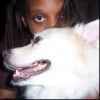"Facts/stats that aren't commonly found"
I really want to speak to the editor that wrote this but there doesn't seem to be any way to contact them. I submitted an article for the niche site and I was just told "please incorporate sources at the bottom of your article for facts/stats that aren't commonly found."
I would like to know which facts and stats they are referring to in this article: https://hubpages.com/animals/The-Smalle … -Easy-Care
Because that vague definition can apply to nearly all that information, and that would affect my ability to write articles tremendously.Contact team@hubpages.com Personally, I would just add some references that cover information about small snakes.
Good hub, by the way
I assume that you did some research for the article. Just list the sources you used for your information at the bottom. You don't need to specify what came from where, or worry about which information is not "commonly found."
Whenever you make a statement that requires proof, or at the least, requires showing the reader where you got that idea, it’s useful for the reader that you place a superscript reference number next to the statement and then list the references in a numbered list at the end of your article to acknowledge the source.
Before I do that I need to make sure it is necessary, because that will impact how many hubs I can produce, and I haven't seen any other hubs do this so is this a recent change? For example, you're suggesting I do this to the information that I researched and didn't come up with myself since I haven't kept this species:
"Size: 20 inches to 2 feet long (females are larger) [2]
Availability: Common [1]
Temperament: Passive personality, some individuals can be flighty. [2]
Feeding Response: Baby snakes often need to start with live feeding, purchase older snakes that are confirmed to be feeding on frozen/thawed. [3]
These tiny boas are fabulous for people who want a snake that stays small both in girth and length. They are colorful and can be housed in a tank as small as 10 gallons or a similarly-sized plastic tub comfortably [2]. The cage doesn’t even need to include much décor, since these snakes prefer to burrow and excessive items can get in their way [1]. Just be sure to provide the recommended substrates. Most Kenyan sand boas have a reasonable disposition although some individuals can be flighty, however they do not prefer to bite in defense [2]. Bites can occur however if the snake mistakes your hand for food, but this can be avoided with proper handling [1]."I don't provide references on my hubs concerning electrical repairs around the house. But I DO introduce myself as a professional electrician with some 20 years experience in doing just that sort of work. Some of the other hubs (history of Cristmas, for instance, where I researched the information) I DO offer sources.
Perhaps that's the difference. I am the "authority" on the information being presented, and make that clear. Unless your are a herpetologist, and make that clear, then you need to indicate where the information is coming from.
Just a thought, but perhaps what HP is driving at here.They stated "not commonly found". I don't see what authority would have to do with that. Sounds like they are saying to cite any information obtained from somewhere else, which for most of us, is most of it. Even doctors, scientists, and researchers can't just state something without a reference, unless they conducted the research themselves. So if Hubpages is going that route, I'm surprised only I got notified.
You don't know that it's just you who was notified. It could happen to anyone posting similar articles.
Go back to the sources you used and cite them at the bottom of the article. Make sure it's not Wikipedia though. You only need to add two or three authoritative sites.
See it as HubPages ensuring that our content is accurate and of high quality.I could do that, but that wouldn't be too helpful if someone wanted to know where I got a particular fact.
She is a biologist and works with exotics so I think that makes her enough of an authority. I do not think you need to be a herpetologist to write a basic info article on small pet snakes.
Yes, that's true. A person who owns a snake can write an article too, but they would have to cite their sources. Being a professional it is known that you have to cite your source, it's standard across the academia-industry. HP is asking for that now just to stay ahead of the game for a change.
Melissa, yes, HP is going that route, and it's for the best. If you want your content to have value, it is wise to add references. Most of my articles have references and many of the top authors here in terms of traffic and articles have references too. It is not just you. As you rightly pointed out, even doctors and researchers need to add references.
I'm sure you know how it's done and others have already pointed it out. Take a look at my Tomato a fruit or vegetable hub if you want to know of one way you can do this.Ok so I've seen many suggestions and I don't know which to take (still waiting for a Hubpages response, probably won't get that until after the weekend). I think it would have been helpful if the editor told me which information they were referring to and HOW they want it done. This should have been announced by Hubpages to everyone. That's a big change if Hubpages wants 'academic' type articles.
I would gladly add references to information that is coming from one person, as I've done in the past when I got some specific sloth feeding information from The Sloth Center that they came up with, but my snake article is pretty general, with information that is pervasive among reptile care sites. Most of these sites, even though they are a respectable source, don't have references either. They are not primary sources, I'd have to go through Google Scholar for that.
To make it like science writing I'd have to put quotes or brackets after every statement I didn't come up with myself, with the exception of maybe something so well-known (i.e. smoking can cause cancer, mongooses are feliforms) that it isn't needed, but this is not well-defined. It can be argued that this cited statement "Macronutrients are energy giving and include fruit sugars (fructose), carbohydrates, fats, and proteins" is general and commonly found. Otherwise, why wouldn't "A berry is a fruit which has developed from a single ovary and has multiple seeds" be cited as well?
Then I would have to make a references chart in the right format. I see you use links, but those frequently break. I have numerous broken links from doing that in the past and I don't think that is good for Google.Because both the above that you point out: Macronutrients and Berry are definitions from the English language. But I see what you mean and I guess you should wait for the team to reply. I just tried to help you out and to point out it's not just you that has been asked for references nor is it something new, the first time I was asked was almost 2 years ago.
I've never been asked that before. I don't think the niche sites existed 2 years ago (I think), and they aren't moving my article because of this. The last article I wrote ( https://owlcation.com/stem/Animals-that … l-two-legs) had more scientific information then my basic snake article. I think this is a problem. And this comes at a time when I'm really coming up short in the quantity of articles I'm producing and trying to improve. Now I might be asked to go back and change over 100 articles...
Old articles are not touched usually. A quick look at that last article of yours and I only see comparisons and no hard figures. Probably that's the reason it passed through without the need of references, no direct solid facts? Also, a lot on the niche sites depends on the editor. They have basic guidelines, but people have stated that different editors work differently.
Dengarden is almost 2.5 years old, you can look up a website here: https://www.whois.net/It's a great article. Don't get discouraged. I think your author bio is enough proof you have a certain amount of expertise in your subject. But since the editor doesn't, write to her. I saw someone gave you the address.
In the meantime, you probably have a bio book or something on snakes lying around, or can get one at the vet's office where you work. All you need to do is add another text capsule at the bottom of the article and call it References. List the Author, Title of the Book, Year, Publisher, and what chapter and pages you got info from (as close as you can recall). I've had to do this on articles years old, and on some can't exactly recall, but it is a book I read years ago which added to my knowledge. For me the hardest part is digging through my enormous library of books.
The editors are nice most of the time. It will take you 5 minutes tops to add the References, and the article is worth getting on a niche. Good luck.
I could be wrong, but there's a difference in writing about a trade (electrical work) and fact. A trade can be done in many different ways, but facts are facts. The positive wire should not be connected to the negative or whatever, that's fact, but it's also common knowledge and does not have to be stated.
Say for instance, (just an example) it is standard that all apartments must have as a minimum of X feet between the floor and ceiling. Now that is a fact and must be cited if you ever say something like this.
The same with the snake lengths. As an expert on snakes, you can comment on whether they are poisonous or not, what they look like and how to avoid them - these are so-called trade skills. But, even as an expert in the field, unless you state that you've done your own research to come up with the average length of a particular species, you cannot say, this snake is X meters long. You could, but something like this would never pass a peer review check.
Most of the readers are not going to want references, but some surely would want to know where you got your facts from. You have to cater to these readers too. That's where the future of internet content is and HP is trying to stay ahead of the game, as I just said in my previous reply.I disagree, Lobo. The ignorance of most home owners in the electrical is astounding (to me), but I am an expert here.
For instance, that positive wire hooked to a negative; there is no positive and negative in a house. Nevertheless, if you swap the hot (black) wire and the neutral (white) wire on an outlet it will work...until there is a fault somewhere, whereupon you get shocked from your vacuum or whatever. It can be deadly even though it worked for years without a problem.
You should never put the neutral wire through a light switch, even though the light will work, for the same reason.
These are "facts" (just as the common length for a snake), but few homeowners know them and certainly don't understand them. They are "facts" because of the design and construction common throughout the country rather than from a natural law, but nonetheless "facts".
At the same time, there are many instances where there is no "right" or "wrong" when wiring something...just a method that is far cheaper and easier. Again, not something a homeowner will know but something I can help with.
In a very few cases I mention the NEC (National Electric Code) but even that is not adopted entirely by all states as necessary and some methodology varies. Most of the time the knowledge is coming from years of training and experience; not from a book that can be quoted. So I don't - instead I give what those years have given me.
Likewise with a herpetologist; they may know the average length of a rattlesnake, having learned it decades ago or from handling hundreds of the snakes, and there is no reason to research and find it in a book somewhere and then quote that book as an authority. The herpetologist IS the authority, just as I am.
But someone that HAS researched the snake length DOES need to quote an authority as they do not have first hand knowledge from experience or long ago training.What. You guys don't have positive and negative in the US? Interesting.
But I still stand on the references to the lengths, etc. Maybe it's my scientific writing background.Neither does anyone else I'm aware of. Certainly not Europe or Australia. Mexico doesn't and neither does India or Japan.
Positive and negative only apply to DC systems, but such systems are not practical for an electrical grid. The world operates on AC.
I see that as problematic. I just recently got into an argument with someone who claimed to have worked with wolves for many years and they disagreed with some information I had obtained from a research article. I think even people with authority should not let their personal experiences override statistical analysis or research.
Absolutely correct. Unless your experience is wide enough to be a statistical/reasearch universe in an of itself, of course. When you have studied the topic enough to write textbooks on it YOU are the authority. And of course, "experts" often disagree among themselves, too!
Hi Melissa I read your article and the only thing I noticed that might be hard to find is the feeding info on the Childrens python. Maybe include a reference to a fact sheet?
The editor was probably Tessa. She has done a great job editing some of my articles. Her email is tessa.buchin@hubpages.comThanks Dr. Mark. I'm having trouble figuring out which information needs reference. I found that information the same way I did all others. Which part do you think is hard to find?
"It the wild, this species feeds mostly on frogs and lizards, so naturally they can be finicky when younger, which is the case with most snakes. Nearly all available Children's pythons will be acclimated to eating frozen/thawed mice."The last sentence. Even then, if I were going to be buying a Childrens python I would read some care sheets, so it is written elsewhere.
I think only the editor could comment on what she wants. (If this were my article, though, I would just include the references at the bottom, and not footnote them as has been suggested. I think that would take away from the readers enjoyment of the article.)I don't know if that's written anywhere, as that's kind of a general rule about snakes sold in the trade that are 'easy' to care for. I read that the hatchlings can be finicky, so as usual, they don't get sold until they are eating regularly. I wanted to emphasize that since I stated they are good feeders, but only when purchased under normal circumstances.
I don't think a person can say "I am the authority" on the length of snakes when they didn't go measure a representative sample of snakes. Being an expert doesn't give you free reign to pass unverified hearsay onto novices. A lot of nonsense and outdated information gets spread around that way. Just go on Google Scholar and check your facts. It won't take more than an hour of so to fact check the entire article.
Yup, this is exactly what I have been trying to say.
An hour + per article is a lot of time to me, if you even find the information at all. Still waiting for a response.
They have already told you they want facts sourced to the reference. In terms of what is not common knowledge--whatever you colleagues/friends/family who don't know about snakes wouldn't know.
Have they asked you to add references to all your articles? If not, then why not do as suggested previously and add your sources? That will cover it, I'm sure.
Maybe. That's what I'm doing if I don't get a response. No numbers, or Google Scholar for basic info. I use the same sources I would to care for my own animals. I need to write more articles, not add more references. That's what makes the difference.
In a few years from now when Google penalizes websites providing facts with no references, this will make all the difference.
Unless they start penalizing sites for lack of consistent content first, as they seem to be doing right now, and have been doing in the past. Which seems more likely?
Both, EAT is already being implemented in some niches.
We'll see if references for a list of small snakes and general facts makes the site rank lower, because I have 100 other articles that will remain unchanged. I have noticed that Google favors various levels of 'expertise' that I have no control over. There is a huge difference in WHO the article is written by, not the quality of it. I'm wagering that quantity is still more important, as long as there is a reasonable standard. As there still hasn't been a reply, I'm just throwing some sites at the bottom and re-submitting.
I think that will do it. Owlcation is the only niche site I write on which requires sources. Many of my articles have the same sources. It's not as hard as you seem to think it is. Once a piece gets on a niche site, you get a lot more views and make more money. I am making money each month for articles I wrote in 2011. It really is worth your time.
My article was submitted to Pethelpful. I think we all know how essential getting the article to a niche site is.
We do. You seemed to be wavering quite a bit as to whether it was worth it to provide sources, so I wanted to encourage you and offered up some personal info as an incentive.
I hope my latest article has a reasonable number of references ; ) Took about a week to write though. https://hubpages.com/animals/The-Best-H … -Size?done
Related Discussions
- 276
We're Moving Content To Discover HubPages
by Lisa Winter 18 months ago
We constantly strive to ensure that articles achieve the best possible visibility and engagement. Discover HubPages has a higher domain authority than many of our network sites, which means your content’s potential to attract more traffic and generate higher earnings will be improved by moving it...
- 27
Using Amazon to reference sources
by Adrienne Farricelli CPDT-KA, Dip.CBST 3 years ago
Hi all!I had a Amazon product link removed because apparently it didn't meet the necessary requirements. The link went out to the book I have used as a reference in the article and have paraphrased the authors' statements. Doesn't this imply that I have personally used this book? I own this book...
- 35
Advice On Adding Sources To A Hub Please?
by Alison Graham 9 years ago
I received an email from HubPages about a recently published Hub, suggesting some changes that might mean it could be moved to Healdove.One of the suggestions was as follows:"Can you add some sources to support your information? You can create a "sources" section at the end of your...
- 21
What exactly are "spammy" elements?
by Erin Day 5 years ago
The latest article I submitted didn't pass QAP because it contained "spammy elements." I'm really struggling with what that is because the only links in my articles are the sources I used. Do they want me to not cite my sources? I'm just so confused and it's really discouraging that the...
- 47
What's considered "Going Viral" on HubPages?
by David Patrick 12 years ago
A couple years ago in 2011, I had a hub on another account that went up to 5000 views rapidly. Eventually it waned to about 1000-1300 views. Now after a couple years it gets about a few hundred views a day astonishingly. Would that hub be defined as "going viral?" I know it's not...
- 4
Using citing and information sources
by TomaGerdzhikov 10 years ago
I have 2 questions on the matter. Firstly is it ok for me to quote from textbooks or scientific books and if so how do i do it properly (how to give credit the proper way) ? And my second question is more of a request. I know it is ok to use wikipedia but can anyone recommend other decent...














